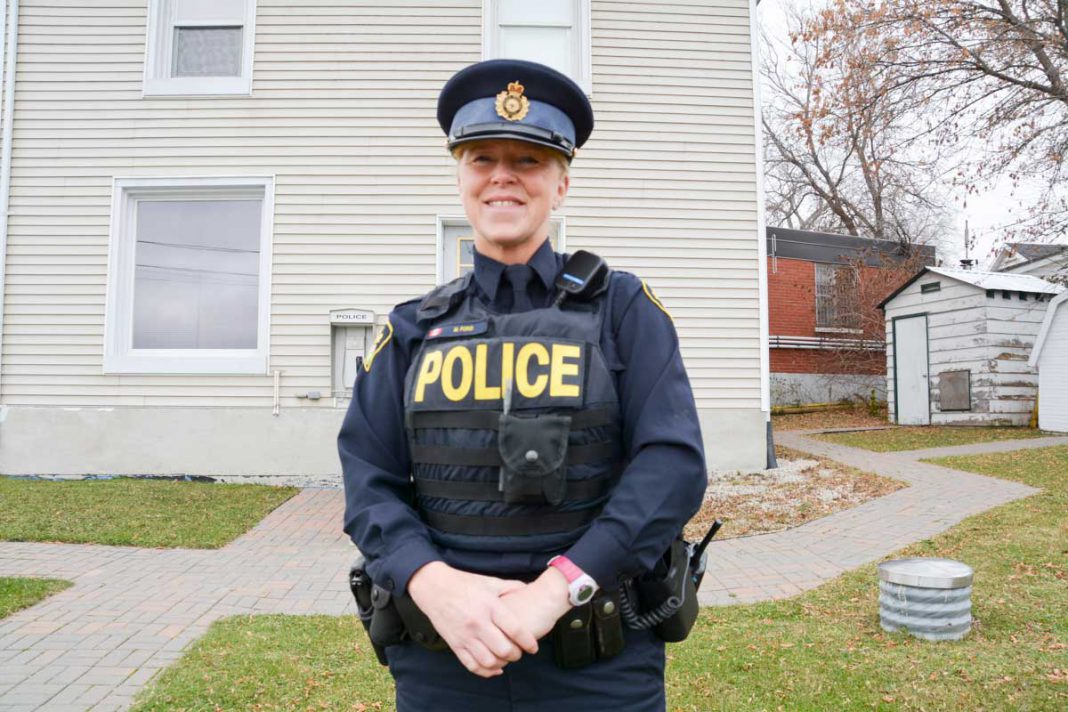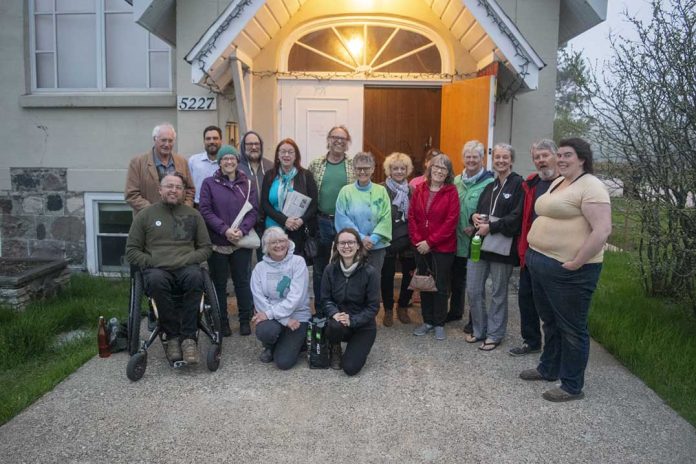MANITOULIN – There has been a lot of interest expressed in using low speed electric vehicles, such as golf carts, on municipal streets recently as a low cost green alternative for that short trip to the grocery store or post office. But although the Ontario government is currently in the second year of a 10-year pilot program that allows for the use of low speed electric vehicles on the streets, don’t go barrelling off the green with them just yet, there are a few speed bumps along the route.
According to OPP Community Services Officer Marie Ford golf carts cannot be operated on roads in Ontario and that includes sidewalks.
“Golf carts are illegal for on-road use in Ontario because they do not meet provincial equipment requirements and therefore cannot be registered,” noted Constable Ford, adding that ignoring the law can be costly. “A driver of an unregistered motor vehicle on public roads can be charged with driving a motor vehicle without registration ($110 fine) or insurance (court appearance) and the vehicle could also be considered an unsafe motor vehicle if operated on roadway.”
Constable Ford said that golf carts can “only be used where the HTA does not apply, such as private property.”
There are a number of legal issues, but Constable Ford points out there are a couple of other even more important factors to consider. “Although it’s the law, imagine the injury if a golf cart was being operated on a roadway and it was struck by a vehicle,” she said. “Or, if the golf cart struck a pedestrian. Golf carts are for golf course and private property. If someone requires motorized transportation, they have the option of a Personal Mobility Device—or medical scooter. These are treated in the same was as pedestrian travel.”
What most people don’t realize that means is that those little electric scooters must be driven as though the driver was walking. “They should utilize the sidewalk, or when not available, the left shoulder of the roadway, facing oncoming traffic. PMV, scooters, do not require registration, licence plates, driver’s licence or vehicle insurance.”
She noted that there may also be local bylaw considerations depending on the municipality.
The pilot project information sheet notes that golf carts typically do not meet the necessary threshold for use. “A neighbourhood electric vehicle is considered a low-speed vehicle (LSV) as long as, at the time of manufacture, it met all of the requirements of a low-speed vehicle. Although golf carts may resemble low-speed vehicles, they typically do not meet the requirements for low-speed vehicles as specified in the Motor Vehicle Safety Regulations, Schedule III. Only LSVs manufactured by a company registered with Transport Canada and that have a compliance label are eligible for the pilot.
In any event, there are only two Service Ontario locations where you can secure a permit to operate a LSV on the street and both of those are located in Toronto. The MTO notes that other locations may be considered should demand warrant.
Currently British Columbia allows LSVs to operate on public roads as long as they are licenced, insured and comply with the Motor Vehicle Safety Regulations for LSVs. LSVs are referred to as a neighbourhood zero emission vehicles (NZEVs) in British Columbia. As electric vehicles, LSVs do not have emissions.
For more detailed information on the pilot program see www.mto.gov.on.ca/english/vehicles/low-speed-vehicles.shtml.





